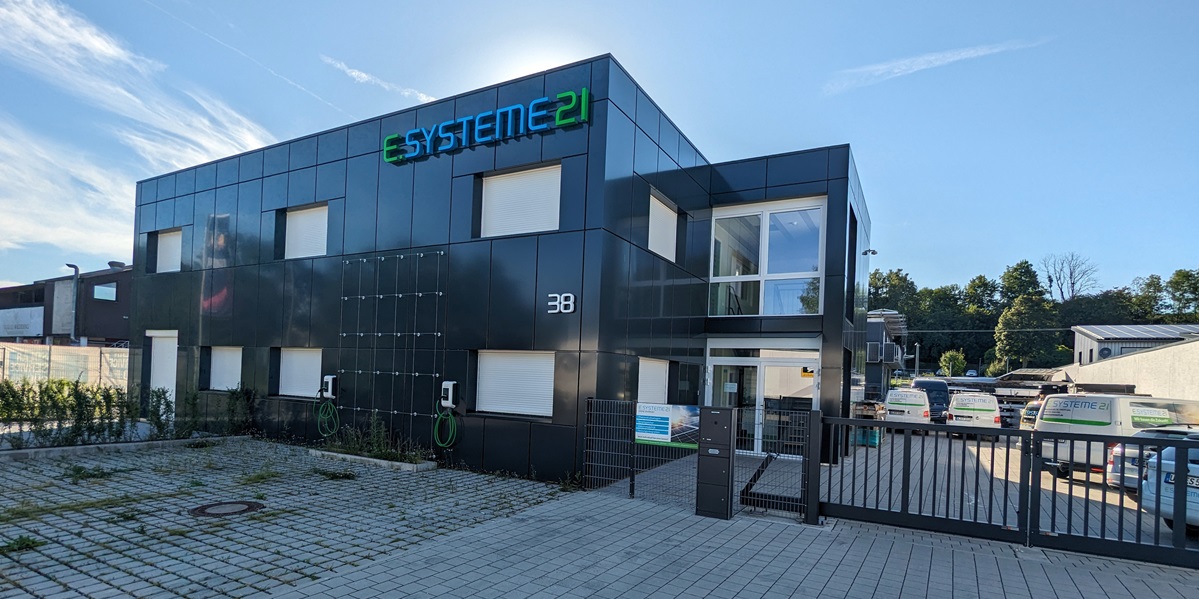 Esysteme21, a German solar company, claims to have achieved complete energy self-sufficiency using photovoltaics, hydrogen, and battery storage. It is now offering this option to industrial and commercial customers.
Esysteme21, a German solar company, claims to have achieved complete energy self-sufficiency using photovoltaics, hydrogen, and battery storage. It is now offering this option to industrial and commercial customers.Norbert Unterharnscheidt, managing director of Esysteme21, told pv magazine that their energy costs for electricity and heat now average €0.25 ($0.27)/kWh.
Initially, the company expanded its building with 360 square meters of office space and 300 square meters of storage, adding thermal insulation and a green facade. They also converted parking areas and property to climate-friendly surfaces with new, water-permeable paving.
The new energy solution includes an 80 kW solar system on the roof and facade, paired with an 80 kWh battery storage system. This setup supports an electrolysis system that produces and stores hydrogen, which can later be converted back into electricity using a fuel cell during winter or low-solar periods. Waste heat from these processes supports heating and hot water preparation.
Heating is supplemented by a heat pump and innovative hydrogen dark radiators, which emit radiant heat similar to infrared radiators. The site also includes three electric vehicle charging stations powered directly by renewable electricity.
Unterharnscheidt noted continuous hydrogen production with plans to fill storage tanks by September, leveraging surplus electricity for potential future needs or hydrogen sales to other companies.
The company's annual electricity demand, including air conditioning and heating, is 17,750 kWh. With 80,000 kWh of PV electricity expected annually, they allocate 34,000 kWh for electrolysis and compression, generating approximately 6,750 kWh from the fuel cell. This leaves a surplus of 32,500 kWh for electromobility and future growth.
The total investment for the energy solution was €600,000, with an additional €700,000 spent on building renovations and environmental enhancements. Leveraging their experience, Esysteme21 now offers consultancy to assist other companies in achieving climate neutrality transformations.
“It is clear to me that such a solution is currently only of interest to a few pioneers,” stated Unterharnscheidt. “But it is still important to demonstrate what is already possible today and to show that the costs are within limits. While electricity costs are €0.10 in summer, they rise to €0.40 in winter – an annual average of €0.25.”